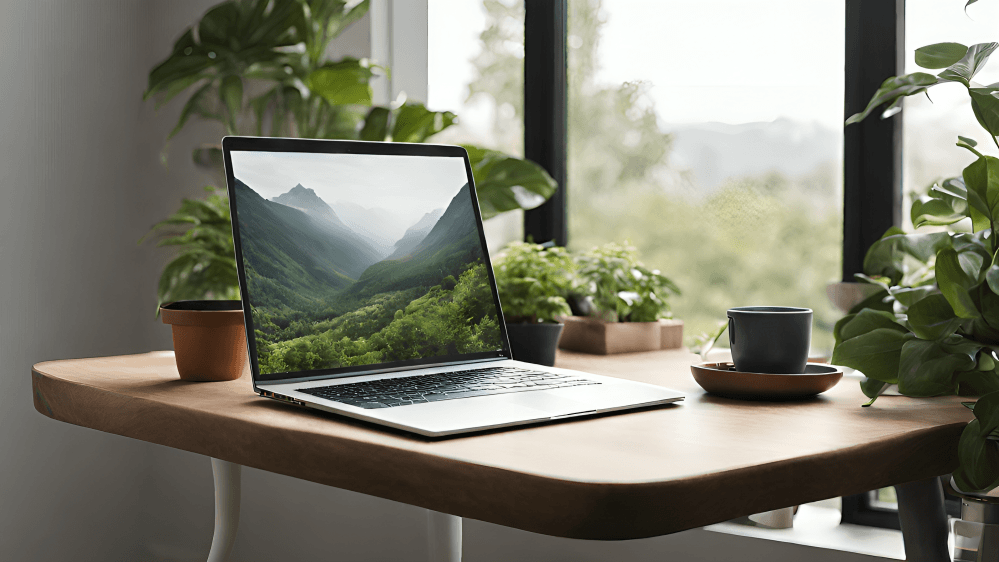
“
In our digital-driven world, many people struggle to reduce screen time & improve focus. Overuse of screens can weaken attention, hinder sleep, and drain energy. Adopting smarter habits can help restore mental clarity, improve productivity, and support a healthier lifestyle. 1
1
”
Ancient philosopher Aristotle believed true clarity came from active reflection and limited distractions. Following his principle, less screen time boosts mindfulness and sharpens focus. 1
Turning off non-essential notifications cuts down on digital interruptions. Without constant alerts, your brain shifts to work, helping you stay longer and reducing the urge to check screens. 2

Creating a “tech-free hour” each morning lets your mind wake up naturally. Instead of reaching for a device, spending time reading or journaling trains your brain to focus gradually.
Using apps that limit daily screen time encourages better digital discipline. These tools provide alerts or lockouts, giving you conscious control over your habits and more time for offline productivity. 3
Practicing the 20-20-20 rule—every 20 minutes, look 20 feet away for 20 seconds—reduces eye strain and boosts alertness, helping you stay focused without exhausting your visual system. 4
Dedicating one area in your home as a no-screen zone promotes intentional rest. Spaces like bedrooms or dining areas without devices lead to more mindful moments and improved attention spans. 5
Engaging in regular physical activity is scientifically linked to better concentration. Exercise reduces screen cravings, increases oxygen flow to the brain, and builds long-term cognitive discipline. 6
Taking frequent short walks during work hours boosts creativity and restores focus. These mental breaks reduce burnout and break the habit of sitting for too long in front of screens. 7

Prioritizing hobbies like drawing, music, or puzzles keeps the mind active while reducing screen dependency. Non-digital creativity strengthens attention, memory, and deep thought patterns over time.
Eating meals without screens improves digestion and attention. Multitasking with phones or TVs during meals distracts the brain, while focused eating encourages presence and mental clarity. 8
Digital detox weekends, where screens are avoided completely, have been shown to enhance concentration, reduce anxiety, and allow for stronger real-world interactions that refuel mental sharpness. 9
Creating a daily to-do list by hand before using screens helps prioritize tasks clearly. Writing boosts memory and structure, making it easier to focus and resist random scrolling. 10
Practicing deep breathing or meditation for five minutes each day sharpens your brain’s ability to concentrate. This mindful habit relaxes screen-stressed minds and strengthens inner calm and clarity. 11
Limiting multitasking between apps or tabs makes your work more efficient. Switching frequently between digital tasks weakens focus and memory, while single-tasking strengthens long-term brain health. 12
Using screen filters or night mode reduces visual stress. Less eye strain from bright light allows the brain to work longer without fatigue, improving both focus and comfort during necessary screen time. 13
Observing a “one screen at a time” rule prevents overstimulation. Avoid using your phone while watching TV or working—focus on one task to boost attention and efficiency. 14

Making eye contact during conversations rather than checking devices builds stronger bonds. It helps you be mentally present, sharpens your listening skills, and reduces background digital noise.
Listening to classical or instrumental music without lyrics can boost concentration. This audio background calms the mind, helping you stay off screens and in deeper work mode for longer periods. 15
Keeping a “focus journal” to log screen use and attention levels helps you spot trends. Writing down distractions creates self-awareness and motivates small, meaningful changes in screen behavior. 16
According to modern psychologists, combining tech mindfulness with memory games or visualization helps reduce digital fatigue and improves focus, especially in young adults and professionals. 17


